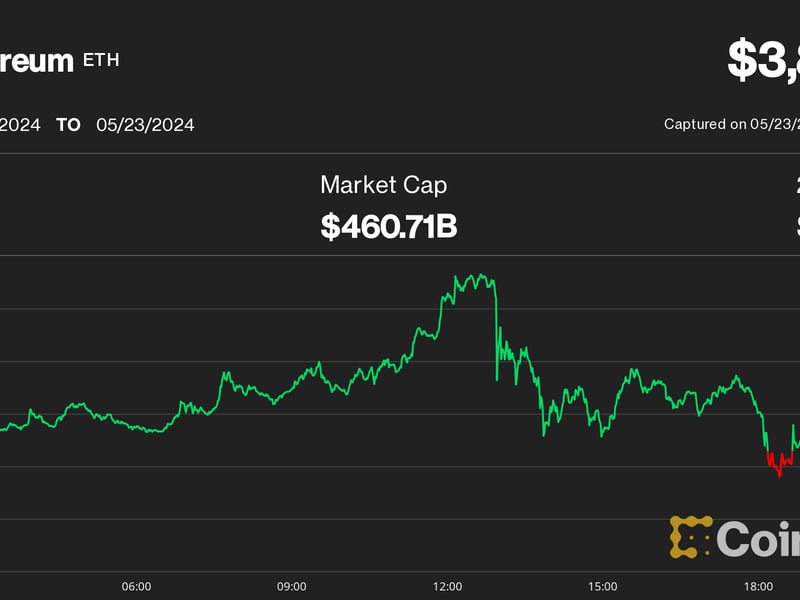Delaware Judge Approves FTX Estate’s Bankruptcy Plan
A U.S. court approved FTX’s bankruptcy plan on Monday, which will see the majority of the crypto exchange’s customers get the equivalent of their 2022 losses, and then some.
The decision confirms the FTX estate’s second amended bankruptcy plan, which was filed in September and met with the approval of 96% of voting creditors by headcount, and 98% of creditors by amount. According to the plan, customers can expect to receive cash repayments worth an average of 118% of the value of their holdings at the time FTX filed for bankruptcy in November of 2022, though some could get up to 140%, lawyers for the estate said Monday. While more than creditors expected to receive two years ago, the funds will not match the gains bitcoin (BTC) and other cryptocurrencies saw over the course of FTX’s bankruptcy.
During the nearly six-hour long hearing, Judge John T. Dorsey of the U.S. Bankruptcy Court of the District of Delaware heard arguments from creditors about the remaining objections to the plan, including objections from companies like Celsius and Layer Zero, as well as objections from a number of individual creditors (some represented by attorneys and some representing themselves) who expressed concerns with the estate’s decision to repay creditors with cash instead of in-kind crypto distributions, the valuation of FTT tokens (which the estate put at zero), and their alleged property rights granted by FTX’s terms of service. Dorsey overruled them all.
Despite a lengthy discussion during the hearing about the FTT token’s inherent lack of value, the token price jumped 55% on the news that Dorsey had given FTX’s bankruptcy plan his stamp of approval.
Brian Glueckstein, an attorney for the FTX estate and a partner at Sullivan & Cromwell, argued Monday that the correct valuation of the FTT tokens held by creditors was, in fact, zero, and there was “no basis” for a revision to this decision.
“Experts explained that FTT has no fundamental value. There’s no utility outside of an operating FTX.com exchange,” Glueckstein said. “There is no and there will be no restarted FTX.com exchange.”
The so-called “property rights” objections – including that creditors should be able to get their holdings back in-kind, rather than in cash, and that creditors are entitled to the other property of the estate – were also overruled after FTX’s lawyers and expert witnesses, including Edgar Mosley, a managing director at consulting firm Alvarez and Marsal, testified that it would be impossible to return their crypto in-kind because the estate simply did not have those assets.
The exchange’s ability to repay customers is due to the liquidation of certain investments made by FTX and Alameda, including an 8% stake in AI startup Anthropic (sold for $884 million), the dramatic rise in crypto prices since the exchange’s collapse two years ago and clawback efforts by the estate. When current FTX CEO John J. Ray III took over from former CEO and convicted fraudster Sam Bankman-Fried, the exchange’s coffers were nearly empty, containing only a sliver of the crypto it owed its customers – for example, only 105 bitcoin (worth about $17,000 at the time) remained on the exchange, compared to the nearly 100,000 customers had deposited.
To go out and purchase the correct amount of cryptocurrency owed to creditors on the open market, at current valuations, would also be impossible, lawyers argued. Dorsey concurred.
Though in-kind crypto distributions are out of the question, lawyers for the FTX estate did say that they were still considering making a stablecoin distribution for creditors an option, and confirmed that they are in discussions with at least four companies who could handle such a distribution if necessary. The U.S. Securities and Exchange Commission has objected to this aspect of the repayment plan.
Edited by Nikhilesh De.
Disclosure
Please note that our
privacy policy,
terms of use,
cookies,
and
do not sell my personal information
have been updated
.
CoinDesk is an
award-winning
media outlet that covers the cryptocurrency industry. Its journalists abide by a strict set of
editorial policies.
CoinDesk has adopted a set of principles aimed at ensuring the integrity, editorial independence and freedom from bias of its publications. CoinDesk is part of the Bullish group, which owns and invests in digital asset businesses and digital assets. CoinDesk employees, including journalists, may receive Bullish group equity-based compensation. Bullish was incubated by technology investor Block.one.
:format(jpg)/s3.amazonaws.com/arc-authors/coindesk/572b85a4-8cec-4461-a07f-e8426649a469.png)
Cheyenne Ligon is a CoinDesk news reporter with a focus on crypto regulation and policy. She has no significant crypto holdings.
Follow @cheyenneligon on Twitter









